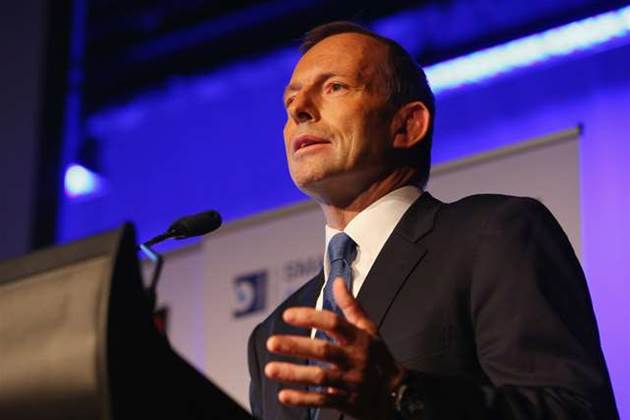Prime Minister Tony Abbott has offered the first public indication of what a Australia-wide telecommunications data retention scheme might cost to implement, placing the figure in the vicinity of $400 million.

Speaking in Queensland today, Abbott said a “range of figures” had been canvassed so far, “but even at the highest estimate it’s less than one percent of this $40 billion a year and growing sector," he said.
"It seems like a small price to pay to give ourselves the kind of safety and the kind of freedom that people in a country like Australia deserve,” he said.
Abbott said the estimates had been submitted to the joint standing committee currently scrutinising the data retention bill, which has in the past accused the Government of deliberately keeping it in the dark about costs.
PricewaterhouseCoopers was commissioned by the Government to estimate what the data retention scheme - which would see telecommunications companies ordered to keep a record of all customer metadata for a two-year period - would cost to implement.
Until today, both the Attorney-General’s Department and the ministers backing the scheme have remained tight-lipped on these estimates.
Telecommunications providers have submitted their own estimates to PwC, but only iiNet has made its projection public. It claims the data retention scheme would cost telcos $100 million in the first two years, to be passed onto consumers in the form of a $5/month addition to their bill.
Greens communications spokesman Scott Ludlam has described the figure as "extraordinary".
"This proposal is all cost and no benefit. It is time the Government junked it," he said in a statement.
Despite the hefty figure, Abbott argued that “losing” access to such metadata - which telecommunications providers are not currently obliged to keep - would lead to an “explosion in unsolved crime”.
He said data retention legislation was the key differentiator between the UK, which he claimed had a 25 percent success rate prosecuting child abuse suspects, and Germany, which he said successfully prosecutes “almost none”.
The multiplication of telecommunications providers and channels had created an impetus for the changes in order to maintain a level of national security oversight, Abbott argued.
“Until quite recently, we had a relatively small number of telecommunications providers and they kept very comprehensive records for quite some considerable period of time," he said.
“What we've seen in recent times is an explosion of different providers and a whole lot of different modes of communication. For instance, a lot of people don't even use mobile phones that much these days, they use Skype and things like that."




_(20).jpg&h=140&w=231&c=1&s=0)
_(33).jpg&h=140&w=231&c=1&s=0)





 iTnews Executive Retreat - Security Leaders Edition
iTnews Executive Retreat - Security Leaders Edition
 iTnews Cloud Covered Breakfast Summit
iTnews Cloud Covered Breakfast Summit
 Melbourne Cloud & Datacenter Convention 2026
Melbourne Cloud & Datacenter Convention 2026
 The 2026 iAwards
The 2026 iAwards












_(1).jpg&h=140&w=231&c=1&s=0)



